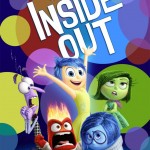 This review was originally published at Christianity Today in October 2006.
This review was originally published at Christianity Today in October 2006.
–
It’s bullet time at the movies. Martin Scorsese’s cops and crooks are clashing are unleashing storms of bullets, and Clint Eastwood’s Marines are firing more shots than anyone could hope to count. But in Alejandro González Iñárritu’s new film Babel, a single gunshot causes an international crisis. It’s a shot heard around the world, and one you won’t forget anytime soon.
Who is to blame for that shattering blast? The adolescent shooter? His father, who entrusted him with the rifle? The man who sold them the gun?
In the world according to Iñárritu, we must look past that shot to understand the root cause of the crisis. Like a surgeon exposing tumors, this talented director reveals the fundamental flaw common to everyone involved in calamity. It’s a disease that knows no borders. And it runs deeper than any bullet wound.
Babel takes its title from the Genesis tale in which God punishes and scatters an arrogant people by confusing their languages. The film clearly demonstrates that the separation continues. Fault lines run between nations and traditions, but they also splinter to divide communities, families, and marriages. A simple dispute between brothers can tear a rift in history, and a gesture of grace between strangers can make a difference too.
To demonstrate this division, Iñárritu and his screenwriter, Guillermo Arriago, weave plots through Babel’s 142 minutes, continuing a trend of complicated big-screen tapestries. Many will compare it to Crash, Magnolia, Syriania, and Traffic. But it’s also worthwhile to compare it to Iñárritu’s first two films, which were similarly convoluted — the critically acclaimed Amores Perros and his first American effort, 21 Grams.
Babel is the most ambitious of the three, taking us into four strikingly different cultural contexts. In its intricate web of narratives, it is more accomplished and affecting than the Oscar-winningCrash. But it’s not likely to be as popular. Audiences found it easy to applaud Crash, because who could possibly argue with its premise? Prejudice is bad, love is good. Babel‘s revelations are more painful to watch, more discomforting, and ultimately humbling. We’re likely to see our own limitations mirrored back to us in uncomfortable ways—flaws that know no borders. (Americans especially could learn from its portrait of tourists becoming impatient with the limitations of other, less-privileged cultures.)
Babel begins in the rugged hills of North Africa, where two boys—Ahmed (Said Tarchani) and Yussef (Boubker Ait El Caid)—are protecting their herd of goats with the help of their father’s new long-range rifle. Boys and guns are never a good combination, and sure enough, one of them makes a huge mistake that will divide the family and test the wits of local authorities.
The second chapter of the film involves an American couple, Richard and Susan Jones (Brad Pitt and Cate Blanchett), on vacation in Morocco. Nursing the wounds of a recent tragedy, they have left their children back home with the nanny, hoping that an escape will bring them solace. But there’s no easy fix for their damaged relationship. And the desert tends to rub tempers raw, especially for those who aren’t used to it.
Things go from bad to worse when the Jones are drawn out from behind the safety glass of their tour bus and forced to endure a terrifying ordeal that tests the mettle of their marriage. In the sudden shock of their suffering, we may wonder how we would respond in similar circumstances. Surrounded by people who don’t speak English, far from modern conveniences like toilets and medical aid, Richard reminds us how easy it is to take luxury for granted. And through his eyes, we discover that the people of poorer cultures know a few things that we don’t.
At the same time, the U.S. government faces a challenge that mirrors Richard’s personal dilemma. Recently wounded by violence, America is quick to see terrorism where it may not be. Will such fear result in even more misguided violence?
Meanwhile, back home, Robert and Susan’s children have stumbled into a different sort of trouble. Amelia (Adriana Barraza), an illegal immigrant working as their nanny, needs to get back to Mexico for her son’s wedding. When Richard calls and demands that she stay with his children, she faces a tough choice. Obey? Abandon them to someone else’s care? Or take them south of the border for a while?
But wait—there’s yet another story to tell, one with a mysterious connection to that gunshot.
Taking us to Tokyo, Iñárritu tells the story of a deaf-mute teenager, Chieko (Rinko Kikuchi). Catching the glances of boys their own age, Chieko and her disabled friends commiserate: “They look at us like we’re monsters.”
Chieko’s desperate loneliness becomes the film’s most powerful picture of the human condition. Broken and desperate for a meaningful relationship, she resorts to dangerous games. And it’s hard to blame her. She’s embracing a pop culture lie—that exploiting her own sexuality is the best way to get attention. The result is heartbreaking to behold.
Where is God in all of this? The question doesn’t even occur to most of these characters. While we glimpse some Christian symbols on the edges of these stories, these seem to be little more than cultural decorations. When a Muslim man bows to pray, the Westerner looking on seems bewildered, as if surprised to find that people in this world still sometimes pray.
Iñárritu’s film is not the first movie about alienation to use this metaphor. Michael Haneke’s masterful international drama Code Unknown opened and closed with scenes in which deaf children struggle to interpret each other’s gestures in a game of charades. Similarly challenging, Haneke’s film was more subtle and artful. Iñárritu gives a team of Oscar-caliber talent—cinematographer Rodrigo Prieto, production designer Brigitte Broch, editor Stephen Mirrione, and composer Gustavo Santolalla—room to shine. And yet, by comparison, his film seems heavy-handed.
Babel‘s biggest problem is that when Iñárritu and Arriaga collaborate, the results are almost always dispiritingly morbid. Babel is Arriaga’s finest script yet (he also wrote Tommy Lee Jones’ The Three Burials of Melquiades Estrada). But, like Amores Perrosand 21 Grams, the film feels like a 21-car pile-up of catastrophes.
Iñárritu’s depiction of Chieko’s disintegration is the film’s second dismaying misstep. Chieko, starved for intimacy, strips naked to get attention. But Arriaga should have employed the camera more creatively to preserve the actress’s dignity. These scenes are not pornographic — Chieko’s nakedness is meant to emphasize her desperation and vulnerability. And yet, such full exposure to the camera tends to distract viewers from the story and get them thinking about the audacity of the actress and filmmakers. Worse, we live in an age when reckless opportunists will clip and exploit any images they can to make money off of the sexual appetites of misguided Internet customers. And thus, while nudity can be an appropriate element in art, these scenes may do more harm than good.
If Americans do make Babel a success, that’s probably due to the participation of its A-list stars, Brad Pitt and Cate Blanchett. Films about foreign cultures are normally neglected by American moviegoers, and rarely register at the box office. Thus, the best movies of the year often pass unnoticed due to their lack of celebrity glamour. (How many have seen, or rented, L’Enfant or Sophie Scholl this year?) Perhaps the participation of Pitt and Blanchett will help Babel open up a wider world of fantastic filmmaking for moviegoers.
Fortunately, both celebrities are in top form, reminding us that, in spite of their fame and fortune, they are among the most talented actors working today. Blanchett is impressive as usual, but you’ve never seen a performance like this from Brad Pitt. Looking like he’s aged twenty-five years since Ocean’s Twelve, he disappears into a character whose sufferings will haunt you for a long time to come.
In short, Babel shows us that history has not taught us how to overcome the separation that began at that Old Testament tower. While it is easy for those of us who enjoy some measure of wealth and privilege to forget, we are united—east and west, young and old, rich and poor—in the loneliness of the fall. Iñárritu encourages us to remember that we share “the same spiritual spine.”
He could have added that famous U2 song to play over the end credits—”We’re one, but we’re not the same / We get to carry each other.”
–











